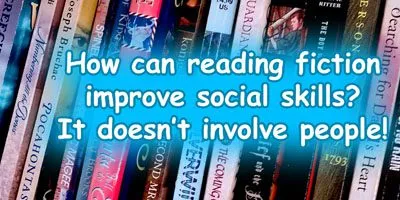Intro To Basic Artificial Intelligence Without The Gobbledygook
Posted on15 Jan 2018
Tagsartificial intelligence, computers, Scientific American, social media, trial and error, big data, MIT Technology Review, machine learning
Comments0
The news contains much about the changes artificial intelligence will bring. An intro to basic artificial intelligence (AI) can help anyone see... Read More
How to Improve Processes by Tapping Their Emotional Drivers
Posted on19 Oct 2015
Tagscertainty, confidence, power, process management, Scientific American, security, success, emotional triggers, strength
Comments0
Processes drive business. They help us with change management and organizational cultures. When people think of how to improve processes, they often... Read More
Dealing with Stress of Status Climbing and Falling
Posted on03 Aug 2015
Tagschange, control, health, Scientific American, status, The Economist, socializing, Carnegie Mellon University, self-control
Comments0
Humans work to better themselves. This can happen in absolute terms such as money. It also happens in relative terms such as... Read More
Creative Innovation (Pt 11): Quantification Restricts Creativity
Business prizes quantification; yet, ironically, it restricts creativity and innovation in two ways: Encouraging electrical activity in our brains which restricts idea... Read More
Memorable Pictures: Unconscious Attractions
Allison Bond’s article, “Haunting Scenes” (Scientific American Mind, November/December 2011 edition), discusses the research of Phillip Isola (Massachusetts Institute of Technology) as... Read More
Extremely Unified Groups: More Aggressive, More Destructive
Posted on20 Aug 2012
Tagsadaptability, aggressive, business planning, compliance, creativity, organizational culture, Daisy Yuhas, Disruptive Innovation & People Analogy, dissent, group, innovation, leadership, military, people, planning, product of our environment, Scientific American, Scott Wiltermuth, standardization, Stanford Prison Experiment, synchronicity, team building, University of Southern California, USC Marshall School of Business
Comments0
Groups change people; a person in a group is very different alone. Subliminal influences encourage groups to accept those who adopt its... Read More
Creative Innovation (Pt 4): Spontaneity & Frequency
Posted on06 Aug 2012
TagsAlex "Sandy" Pentland, Andrea Anderson, brain, brainstorming, Creative Innovation Series, creativity, drugs, face-to-face interactions, fun, group, Harvard Business Review, innovation, Jonah Lehrer, Scientific American, spontaneous, Steve Jobs, team building, team intelligence, The New Yorker
Comments2
The executive walks through the facility or offices to attend the manager’s meeting and finds many employees having conversations; they are laughing,... Read More
Body – Emotion Connection: People Are Very Different
Posted on30 Jul 2012
Tagsapologize, awareness, Beate Herbert, body, Carrie Arnold, conscious, cooperation, emotions, empathy, interoception, Jamil Zaki, Joshua Ian Davis, Kevin Ochsner, laser lamp analogy, Olga Pollatos, people, people's differences, Scientific American, sensitive people, situational awareness, subconscious
Comments0
People are different. However, we tremendously underestimate how different we are. We often think someone is purposely trying to upset or harm... Read More
Relax, Be Creative
Posted on31 May 2012
TagsAlbion College, brain, creativity, experience, fear, Mareike Wieth, Performance, pressure, quantify, Scientific American, The Medici Effect, Thoughts, Tori Rodriguez, urgency
Comments0
A good idea can come at any time. This was one of the key things I learned to be creative. I do... Read More
How Reading Fiction Improves Social Skills And More
Posted on24 May 2012
Tagsbusines, business planning, Chris Moore, computer simulations, Dalhousie University, emotions, empathy, experience, fiction, introspection, Jennifer Tackett, Jordan Peterson, Keith Oatley, Maja Djikic, military, Personality, planning, problem solving, Raymond Mar, Sara Zoeterman, Scientific American, social skills, University of Toronto, what-if scenarios, York University
Comments4
Most see book worms as socially inept. They use fiction as escape. Yet, studies show that reading fiction improves social skills. This... Read More






